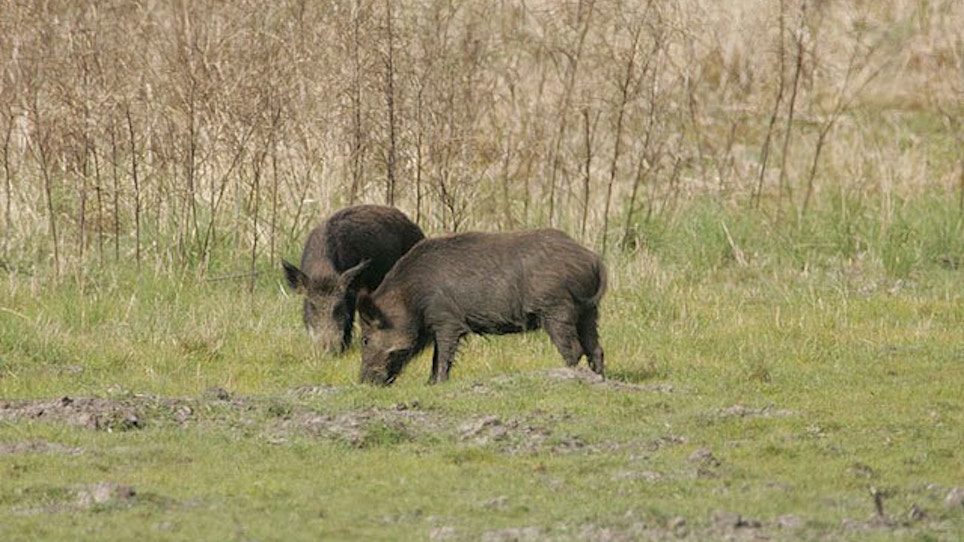CHARLESTON, S.C. (AP) — The problem with feral hogs in the Francis Marion National Forest has become so bad that the state and federal governments are paying three hunters to help remove them.
The Post and Courier of Charleston reports the state Department of Natural Resources and the U.S. Forest Service have hired the hunters as part of a trial program.
Feral hogs are found statewide and are considered one of the worst animal nuisance problems in South Carolina. The hogs are descendants of livestock that wandered off.
According to the Department of Natural Resources, more than 35,000 wild hogs were killed by deer hunters statewide in 2013, the most recent year for which numbers are compiled. That's a 25 percent increase from 2012.
But the Francis Marion trial program has sparked complaints from other hunters who want a chance to hunt hogs as well.
“It's only a couple of weekends per year they allow everybody to come to hunt (with dogs). If (hogs) are such a problem, why not open it up?” asked Carl Morris Jr., of Huger. Both DNR and the Forest Service have received calls protesting the hiring of hunters to remove the hogs.
But DNR's position is that the object is to remove the animals, not just hunt them as recreation which doesn't do enough to reduce the hog population.
“We don't treat hogs as game animals. We want them eradicated. That's the difference between a hog hunt and a removal,” said Sam Chappelear, a regional wildlife coordinator for the agency.
State law has removed most prohibitions on shooting or trapping the animals statewide. But the pigs are prolific and a single female can produce as many as 30 piglets per year.
___
Information from: The Post and Courier, http://www.postandcourier.com






